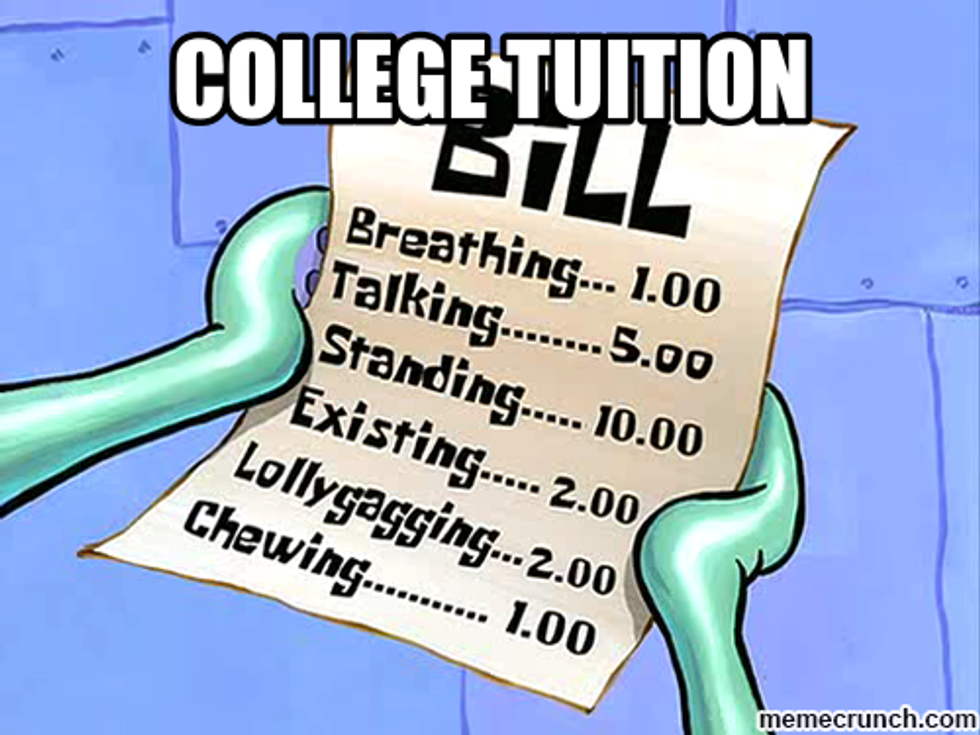As humans, there are constantly events occurring in life where we experience closing a current chapter and reopening a new one. Just like flipping the pages of a well written novel, as we complete another goal that we set for ourselves, our lives pass us by and that event becomes a thing of the past. Graduating from high school, after 13 years of schooling, is probably one of the most quintessential events that we as humans accomplish as a right of passage.
When that day finally arrives and you wake up, put on your cap and gown, walk on stage beaming with your diploma in your hand, it could be argued that a large chapter in your life is coming to a close. However, it’s petrifying to realize that now, at the mere age of 18, you are approaching a time in your life when you can begin to carry out all of the things you have been thinking about in terms of your future. Something that may come to mind for most is the career they are looking to pursue and what it will take to get there: the number of years of secondary education that are required; the applications, interviews and exams that will have to be submitted; and, for some, the most gruesome reality is the costs that accrue over the years from a financial perspective. All of this is a lot for someone to take in, and after the joy of receiving your diploma, the realization of what is to come is not only scary, but it is synonymous to a slap in the face, all at the hands of reality. It may in fact feel a little something like this:
So, college you say? Usually that is the first step into pursuing your career. There are quite a few questions that can arise from just this idea that may be along the lines of, “Should one pursue a community college or university? In state or out of state? How much will this cost? Will I need a part-time job to continue my studies?” Although this list of questions could extend to the length of the Great Wall of China, one of the most gruesome realities is that most colleges push the idea that four years is an adequate amount of time to not only figure out the answers to these questions but to be ready to again prance across a stage with a degree in your hand. Well my fellow worriers, that’s where I come in. I’m here to convince you otherwise.
Without further ado, here are the reasons why I gave up trying to graduate from college in four years:
1. If you haven’t heard, college is pretty expensive. Although there are many ways to pay for college in the form of scholarships, grants, work studies, etc., a decent portion of college students end up having to pay for either a portion or the entirety of their tuition on their own.
2. College is like a full-time job. A famous quote by literally no one ever said, “College would be easy,” and, rightfully, it shouldn’t be. Could you imagine having a surgeon operate on you after telling you they thought college was easy? I don’t think I’d be thinking of a happy place as my anesthesia was kicking in if that was the case. However, because this is true, it’s hard to imagine you could do anything else other than go to college, seeing as your studies are the equivalent to at least 40 hours a week or more of studying and learning.
3. But what if you can’t do just college? Let’s face it, guys and gals, trying to pretend like the only thing we will devote our lives to for four years is studying is a lie. Why do you think movies depict college as a place where you go to discover yourself and party until you can’t anymore? Well, because usually that is the case.
4. Now let’s go back to the cost of college. Oh yes my friends, don’t forget amid all of the red solo cups that there are still bills to pay. As a current university student, I am haunted by the terrorizing emails from the cashiering department as the beginning of each semester crawls closer and closer. In order to pay the bills, most have to take up a part-time or even full-time job. Now imagine adding another 28–40 hours of work to the already accumulated 40 hours or more of dedicated time you have allotted for your studies. But wait there’s more. Stay with me and take some deep breaths.
5. Guess what life is good at doing when you’re on a roll? Getting in the way. Now imagine, you're completely on track — very unrealistic but bear with me. You are completing at least 15 credits a semester, your prerequisites are almost done, interviews have been scheduled to get accepted into your decided program, volunteer hours completed, sounds golden, right? Then, on your way to class in the middle of the semester, you get into an car accident, which lands you in the hospital for a few weeks. You now are unable to finish your final few prerequisite courses, which you now have to retake the following semester — you now do not meet all of the requirements to get into your program and, therefore, in order to get in you’ll have to wait another year to reapply. Now what?
Although this situation is completely hypothetical, I can vouch as someone who is currently going through something similar. The things I have learned from this experience have opened my eyes, after many tears and worries, to something rather profound, and here it is:
Dear current or aspiring university or college students,
From one student to another, I can tell you that the next few years of your life will not be easy, but guess what the greatest thing is? You absolutely do not have to put a time limit on how long it will take you to overcome this reality. It will be hard, it will be tiring, it will be expensive and, sometimes, it will give you every reason to want to give up. However, fret not my dears, you may find solace in the idea that completing college at your own pace will be the most rewarding thing you can do. If you feel the need to take fewer than 15 credits a semester because you have a full-time job to pay for your schooling, do it. If you change your major because your choice that you made at the age of 18, then 19, then 20 doesn’t suit your continuously growing aspirations at the age of 21, I encourage you to do so. Don’t settle for a career you will hate within five years of completing your college degree that may even possibly land you back into college; take your time the first time around.
Sincerely,
A university student with a full-time job that has experienced a similar scenario to the one in point number five and has come terms with the idea that I will not be getting my degree in four years, and I’m OK with that.



























